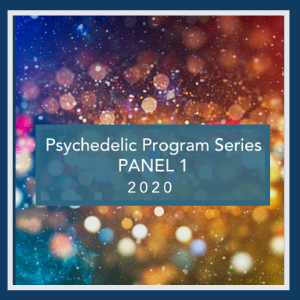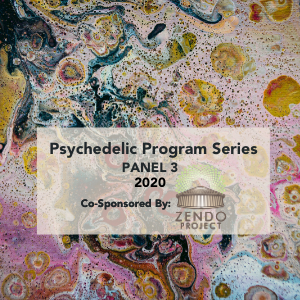The Psychedelic Program
Raising Awareness and Reducing Risks of Psychedelics through Education, Psychotherapy, and Community
Get immediate access!
Suggested Donations: $1, $5, $10, $15, $20, $25
*All donations help to provide for the center’s production costs as well as allows us to give to non-profit organizations that we support.
Moderated by Madison Margolin/ Panelists Dee Dee Goldpaugh, Yarelix Estrada, Julie Holland, Monnica Williams
Co-hosted in collaboration with Double-Blind, this discussion moderated by Madison Margolin will explore issues within the psychedelic therapy community related to inclusivity, trauma related to systemic racism and sexism, and new ways to make therapeutic services accessible. The focus will be on women, BIPOC, and non-gender conforming people.
Moderator: Ken Jordan/ Panelists- Theo J Broma, Leia Friedman, Shea Prueger, Bob Otis Stanley
Co-Hosted in collaboration with Lucid News, a discussion moderated by Ken Jordan about the risks and considerations of continuing to offer psychedelic therapies to people during our present conditions. Keeping in mind reports of abuse and adverse events in the community, we will also consider what safe and ethical providing looks like in general. How can drug prohibition and a lack of accountability create unregulated and sometimes unsafe psychedelic spaces and how can we support people in creating a supported and more ethical approach now and in the future?
Moderator- Sara Gael Giron/ Panelists- Gabriel Amezcua, Mohawk Greene, Lisa Wessing
This panel will investigate the methods and possibilities of making at-home psychedelic use more safe and supported. The current pandemic conditions have created new risks and stressful psychological conditions. This requires innovative and grounded approaches that take into consideration the socio-cultural elements which create varying degrees of risks for each individual.
For more information please call (212) 213-8905 x104 or email intake@cfol.org to request additional information, make a referral or set up an initial consultation.









